


Breakthrough
Therapeutics at RNA Level
Oligonucleotide therapeutics are ushering in a new era in biopharmaceuticals, offering breakthrough treatments for diseases previously deemed untreatable by conventional therapies.

About Oligonucleotide Therapeutics
Oligonucleotide therapeutics include small interfering RNA (siRNA), antisense oligonucleotides (ASO), microRNA (miRNA), and aptamers. As molecules composed of nucleotides, oligonucleotide therapeutics represent an entirely new drug category, distinct from small molecules and antibodies, with multiple oligonucleotide therapeutics currently marketed globally. Our core products are focused on siRNA therapeutics.
To enable siRNA to selectively target diseased tissues without affecting the physiological functions of normal tissues, delivery technologies are required. siRNA modification technologies further enable lower effective doses and prolonged duration of action. We dedicate ourselves to innovating siRNA delivery and modification technologies, having established multiple proprietary technology platforms.
siRNA
siRNA is a double-stranded short RNA molecule capable that binds to Argonaute (AGO) proteins, forming the RNA-induced silencing complex (RISC). During this process, one strand (Passenger Strand) is degraded, while the other (Guide Strand) binds to and degrades target mRNA through complementary base pairing, thereby silencing target genes and inhibiting the expression of disease-related proteins. This mechanism, known as RNA interference (RNAi), was awarded the 2006 Nobel Prize in Physiology or Medicine. RNAi garnered significant scientific acclaim, named a Top 10 breakthrough in 2001 and 2002 by "Science" and "Nature," respectively.





